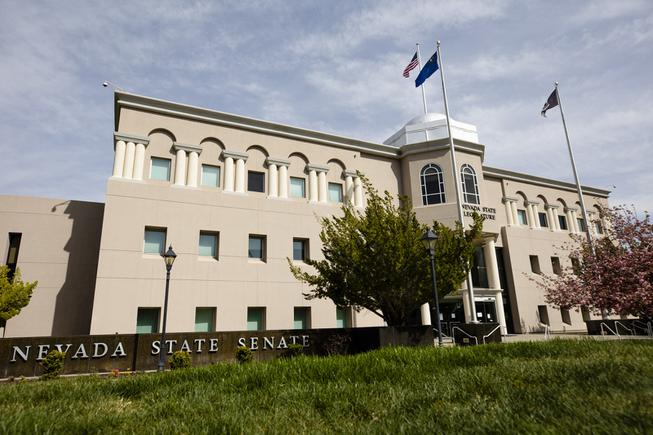Wednesday, May 10, 2023 | 2 a.m.
Nevada Legislature
- Nevada Legislature on track to erode requirements for schools to have restorative justice discipline plans
- Student discipline bills advance at Nevada Legislature
- LGBTQ issues have strong voice in Nevada Legislature with newly formed caucus
- Two years after veto, Nevada lawmakers again push for tenant privacy protection
If it weren’t for a free cancer screening, Emperatriz Alvarez might not be alive today.
A Las Vegan and resident of the United States for the past 30 years, Alvarez has been unable to get health insurance, so a reliance on low- or no-cost clinics remains one of the few lifelines at her disposal, she said.
But when it came to treating Alvarez’s rare form of pelvic cancer, finding and paying for treatment came with a host of other challenges.
“The total cost of treatment was $2,000, which I know may not sound like much, but in my situation, that figure became an insurmountable mountain,” Alvarez said Tuesday via a translator.
Alvarez and more than two dozen advocates gathered Tuesday in front of the Grant Sawyer State Office Building in Las Vegas in support of Senate Bill 419, which expands Medicaid eligibility to Nevada residents regardless of immigration status.
Alvarez and others were there on behalf of Make the Road Action-Nevada, a progressive advocacy group focused on advancing immigrant causes The group announced the launch of a new five-figure ad campaign urging lawmakers to pass the legislation.
“If passed, many of our members will be able to access key services and care,” said Alejandra Muneton-Carrera, the health care equity organizer for Make the Road Action-Nevada. “For decades we’ve been fighting for a bill like this. In order for our communities to live a life with dignity, they need their basic needs met, and that includes access to health care.”
The bill was introduced March 27 by the Senate’s Health and Human Services Committee at the behest of its chairman, Sen. Fabian Donate, D-Las Vegas. It passed out of the committee April 13 on a 3-2 party-line vote. It has yet to go to the Senate floor for a vote, but is exempt from traditional legislative deadlines.
Among other things, the bill would provide coverage under Medicaid for anyone in the Deferred Action for Childhood Arrivals program who satisfies every other condition for enrollment aside from citizenship. It would also allow those under 27 years old to be eligible, regardless of citizenship. The bill would also cover costs for prenatal, labor, delivery and postpartum care for those who are otherwise ineligible for Medicaid because of their immigration status.
Should it pass the state Senate, the bill would advance to the Nevada Assembly, where Democrats have a 28-14 member advantage. But the bill would need the signature of Republican Gov. Joe Lombardo to become law or gain enough votes to override his veto pen.
The two Republicans on the committee who voted against the bill — Sens. Robin Titus of Wellington and Jeff Stone of Henderson — commended Donate for the bill’s intent, but they said such legislation could cause vital supply chain kinks that would affect others’ ability to seek care.
“You are truly looking out for your constituents and the people that you hold dear,” said Titus, a doctor. “I’m looking out for my constituents also, and I feel this bill dramatically dilutes the supply of what we have.”
Stone, a former state lawmaker in California and a pharmacist and real estate agent by trade, also praised Donate for his “omnibus” effort, but added he’s concerned about providing government-funded care to undocumented migrants as it could lead to an influx of new settlers and strain the existing system in place. That, he claimed, was what he saw happening in California before he left to take a job at the Department of Labor under former President Donald Trump.
Opponents also criticize a provision of the so-called HOPE Act that would compel the state to create a database of patient health data that could be easily accessible by the patient. Donate said it would bolster health outcomes because data from one provider could be easily accessed if a patient went to a new doctor. Stone, though, voiced concerns that making some data so easily accessible may open the door to potential patient confidentiality issues.
Donate rejected those claims and contended the bill would not change existing opt-in requirements and noted that even undocumented immigrants — some of whom, like Alvarez, have been paying taxes for years — should be given the same access to health care and argued the state has an obligation to expand its services.
“The taxpayers of this state who call this place home, regardless of immigration status, deserve access to government services,” said Donate, a health care administrator and member of Make the Road Action. “It’s as simple as that. We can choose to ignore it, but they’re not just in my district; they’re all across this state.

